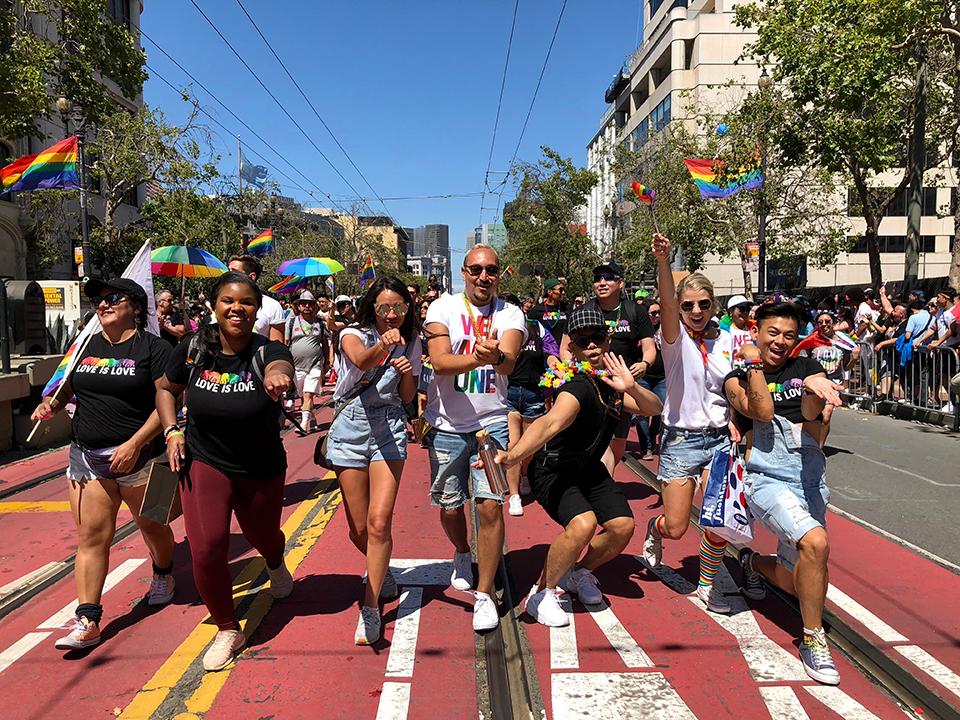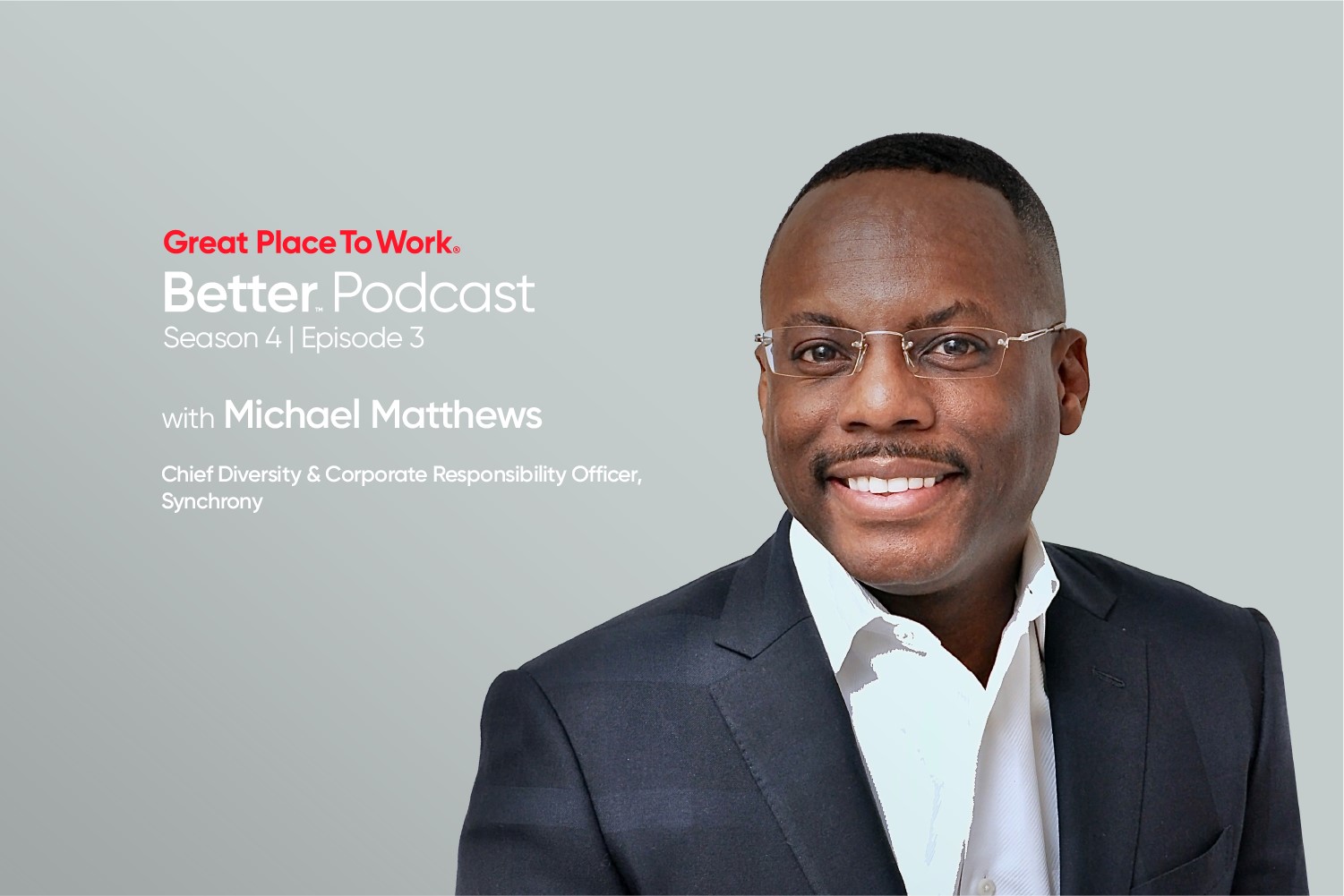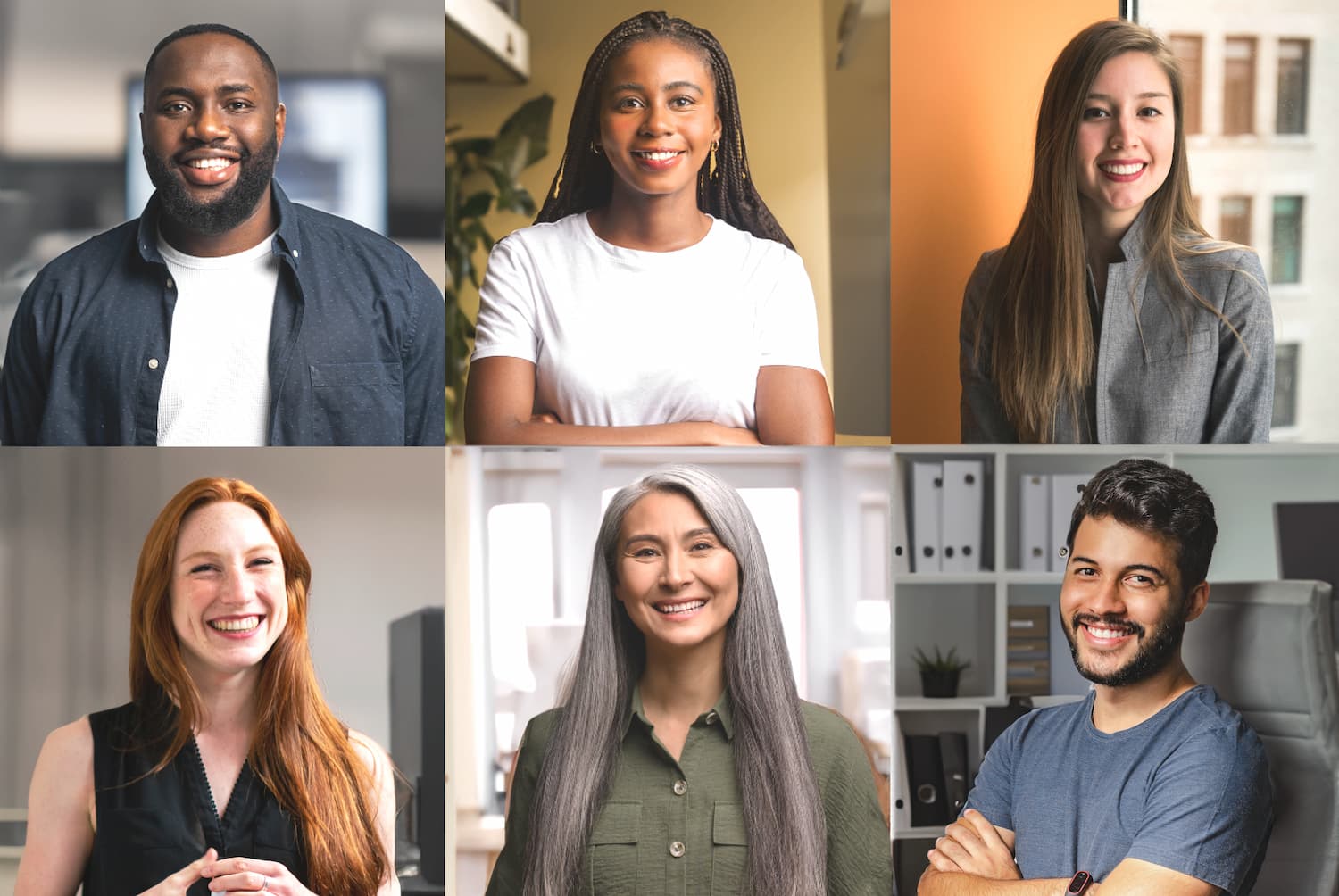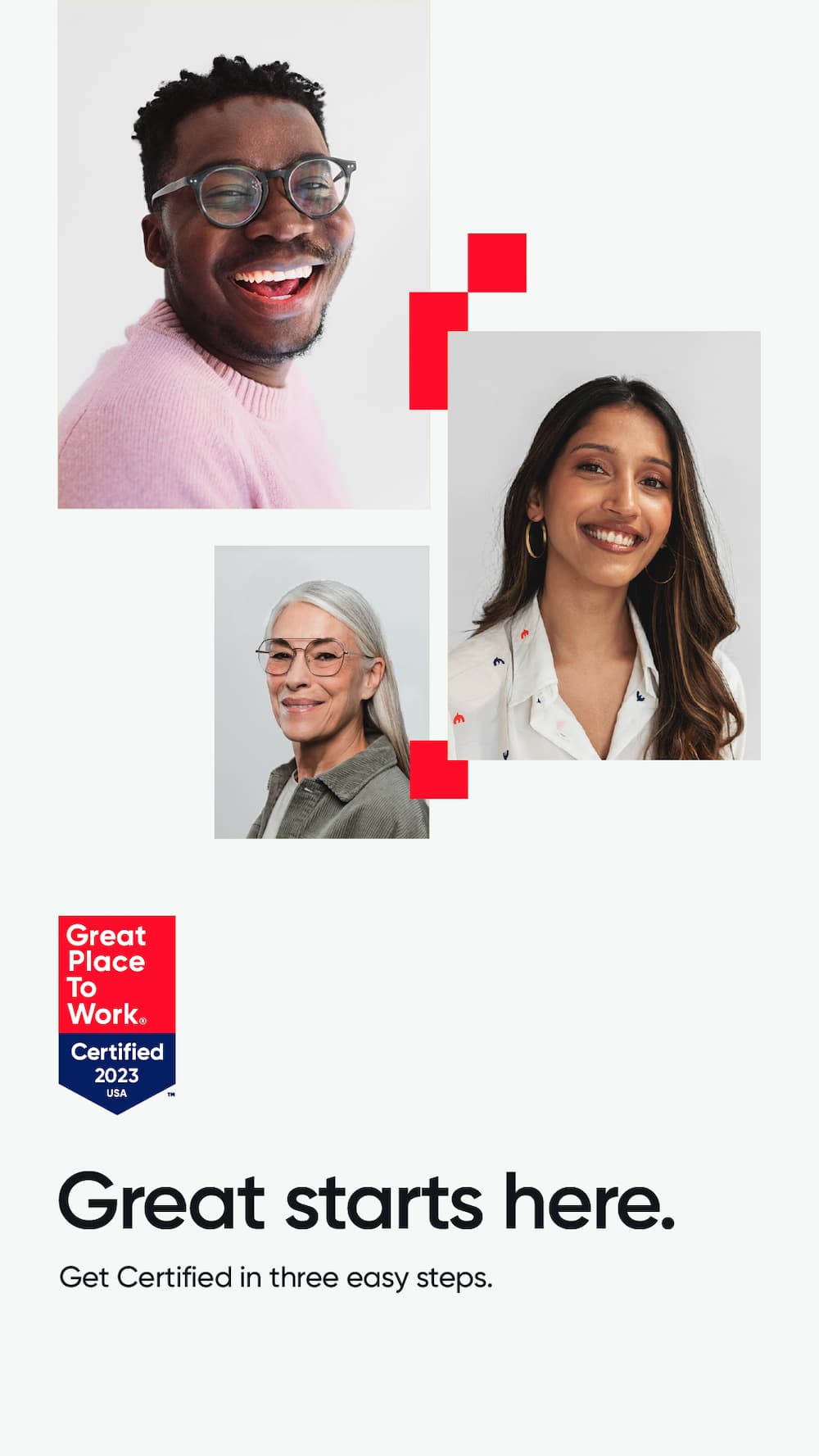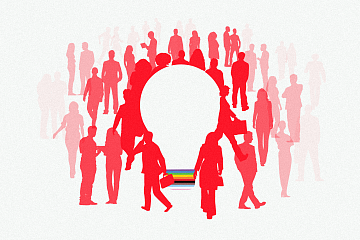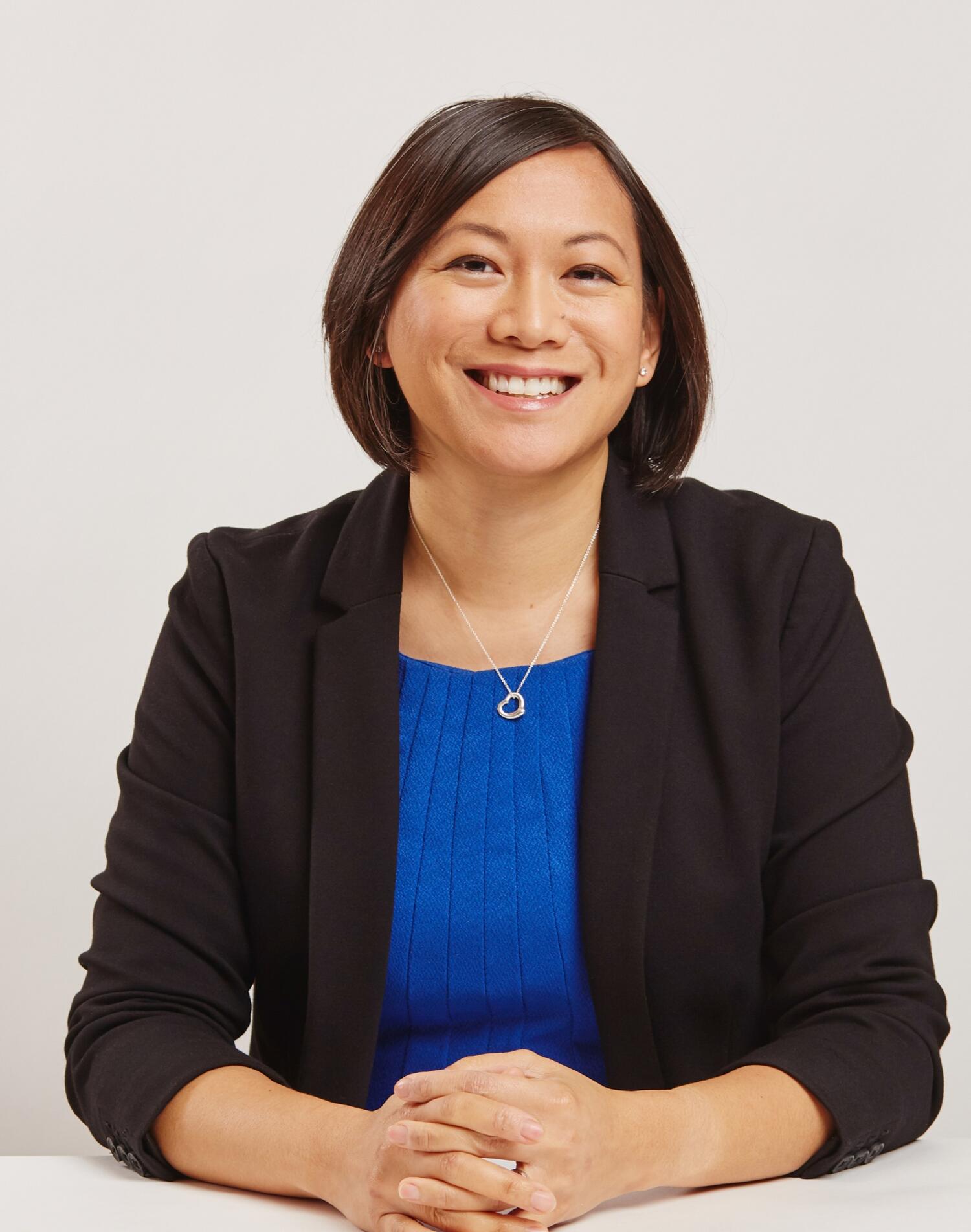
DEIB, Diversity & Inclusion, LGBTQ+
With the 50th year commemoration of the Stonewall Uprising this summer, I’m reflecting on a moment which occurred years ago around my kitchen table. I was a college senior with just two trimesters left when my best friend told me he was gay.
We both grew up in devoutly Catholic and Filipino homes. Our culture told us who we were supposed to be and what our families were supposed to look like. All of that melted away in that moment when he felt safe enough to come to me and finally share a huge part of himself. From that moment onward, I saw a great change in my friend. He was happier when we were together and more fully leaning into who he was and still, who he was to become.
Unfortunately, though, these personal moments of liberation still do not translate into everyone's daily life at work. A study by the Human Rights Campaign found that 62% of openly LGBTQ graduates return to the closet when they enter the workplace. Why? Possibly because our research shows that only 46% of the US workforce feels that their workplaces are psychologically and emotionally healthy, and only 48% feel that their managers are interested in them as people.
Dr. Amy Edmondson, a professor at Harvard Business School, describes the concept of psychological safety as "a climate in which people are comfortable being (and expressing) themselves." Not feeling psychological safe has a negative impact on corporate culture and decreases innovation. What is striking in our research is that the innovation experience varies across race and ethnicity and experience demographics. The Innovation Velocity Ratio (IVR) of Caucasian/White employees decreases by a factor of 3 when they also identify as LGBTQ, while that of African American/Black, Asian, and Hispanic/Latino LGBTQ employees decrease by a factor of 5. The drop is worst (by a factor of 6) for employees who identify as Native Hawaiian or other Pacific Islander and American Indian or Alaska Natives and LGBTQ.
By exploring what may be buried within the stories that reside in the data, we can start examining the multiple layers of identities that shape how a person experiences the workplace. Organizations can start to lean in to leverage the full human potential of all employees, regardless of their demographics. The goal of this 'For All' approach is to intentionally create a consistently outstanding workplace for everyone, no matter who they are or what they do for the organization. For All isn't a program; it is the accumulation of day-to-day experiences that make people, in all the layers of who they are, feel like they belong, that their unique talents matter and their individual needs are cared for by their colleagues, leaders, and the greater community. When we combine very human acts of acknowledgment and compassion with the dignity of work, we create For All workplaces.
Salesforce’s Chief Equality Officer, Tony Prophet summed up the importance of this idea in a wonderful way a our 2018 Summit, saying, “None of us are going to be equal until all of us are equal. So if you stand for LGBTQ equality, then you need to stand for equal equality. You cannot selectively pick and choose equality on this dimension but not another dimension.” As a people manager at Great Place To Work, I am constantly reflecting as to how I can continue to foster the type of workplace culture that enables people to be their most courageous selves, including every part of who they are.
Here are three ways to cultivate psychological safety necessary to build a For All approach within your teams:
1. Refrain from the single story, but don’t underestimate the power of telling your own story.
In her essential TED talk, Nigerian-born Chimamanda Ngozi Adichie discusses the dangers of the “single story” and what happens when people tend to reduce the story of a group to a single narrative, removing the fullness of their human experience. She states that “The problem with stereotypes is not that they are untrue, but that they are incomplete. They make one story become the only story.” What are the listening practices that you champion within your organization to ensure that people can share the stories of their experiences as they navigate through the world? At our 2017 Great Place To Work For All Summit in Chicago, Beth Brooke-Marciniak from EY shared her story as the most senior female executive to come out within the corporate world.
“Those who understand the platform that they have to make a bigger difference, to be a role model, to be visible, and to use their voice to drive change, they actually have far greater impact, and are, in my experience, actually more effective in their day jobs as well. They just recognize their platform as a role model and they use it.” Are your leaders bold enough to be vulnerable to share their own stories to help create a foundation of psychological safety for your teams?
2. Celebrate moments in collective history in an authentic way by honoring the past and looking forward together through a For All lens.
Consider how your team can continue to celebrate important movements outside of their 'designated' day or month. How could you ensure the discussion about equality and fairness goes beyond Pride or Black History month, for example? Think about hosting a brown-bag lunch to learn about the history and reasons for civil rights and human rights movements. Make the space for conversations to learn from history around the fight for equality of many groups in the US and around the world and think creatively about how you can help your organization support all members of your team to share their unique histories and perspectives on these movements.
3. Ask your employees to share the truth of their daily work experience, listen to what they say and take action to make your culture more For All.
Every year we take the Trust Index Survey, just like all of our customers, to gather detailed feedback on the daily experiences of every single employee. We have a very high-trust culture, so we actually share the entire set of results data with everyone via our culture management platform Emprising. In the Results module, we each could see very clearly where others' experiences did and did not match our own. Just like most companies, when you consider the multiple levels of uniqueness in each person, you uncover differences across peoples' experiences at work. We still have room to create an even more For All culture, but with the commitment of our leadership to make this integral to the success of our business, we find ways to work together to get better, every single day by listening deeply.
In September of this year, I will be celebrating my best friend’s marriage to his life partner. I’m able to share in such a special day because of the actions of so many leaders that believed in the power of For All. I am so grateful for all those before us who fought with the belief that Love is Love. From the Lovings, a couple in 1967 whose love for one another challenged and changed the laws around interracial marriage, to those who fought for equality at Stonewall to usher in the powerful movement of the LGBTQ rights movement, these individuals turned to collective power to help create a world that is a bit more For All, for everyone.




